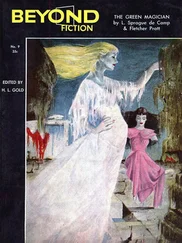The older Mr Rawat, who had a shop in the bazaar, had hung a red woollen globe at the entrance to it: it was as large as several footballs and tall people tended to bump their heads against it on their way into the shop. All over town, there were soggy posters with Ankit Rawat’s purposeful young face beaming from the centre of a ball of red wool. I had only encountered him before across the counter at his father’s shop, when he had sold me thermal vests, socks, and cardigans. “Now I will have to employ an assistant,” his father said in jovial tones. “My son will be too grand for my shop.” He gestured towards the sacred red circle of kumkum and rice grains on his forehead. “All God’s grace, all His wish.”
Ankit Rawat’s supporters, mostly young friends from his college days, tore through the market and Mall Road on motorbikes, shouting his election slogan into megaphones and telling people when and where to vote. “Send your son to Delhi! Uttarakhand needs a man from Ranikhet at the centre,” they urged, to cheers and jokes from the shopkeepers and the people in the streets. Ankit switched from his jeans and jackets to long white kurtas and a red chadar that billowed from his neck when he thundered past with his motorbike cavalcade. Surrounded at all times by his cohorts, he acquired a pop star aura that made people want to be noticed by him. He was clean-featured and tall, and when he posed next to toothless old village women or porters and farmers hunched by years of bending, people said he looked like a prince. He happened to pass by Ama’s cottage one evening at the end of his monthly Ranikhet Darshan, when he would meet common folk and discuss their problems. “He sat on that stool in the courtyard outside our hut, just like an ordinary man,” Ama said later, to anyone who would listen. “I had nothing in the house but some batashas and tea. Mud all over me because I had just come from the fields. He told me he had never drunk such sweet tea. He promised double water supply. And the electricity will never go off.”
Ankit’s opponent was a man from Nainital who had won election after election promising to serve the Hindu cause. Umed Singh was said to be a battle-hardened, canny politician, and had taken to calling Ankit “chota bachha” — little child. “Mind you, every child should be encouraged,” he said, to a Nainital journalist who used the comment as a headline. “Children need to learn the ropes.” Umed Singh had not yet come to campaign in Ranikhet: in the past he had never needed to. This year was different.
The Baba who had taken up residence at the temple near my favourite tea shack caused a flutter one day when he appeared in the market, where an orange and red marquee had been set up. He was greeted by singers who were bleary-eyed and hoarse-voiced from singing songs all night that were broadcast across the valley on loudspeakers. The occasion was Umed Singh’s first campaign visit to Ranikhet. The Baba blessed them, and he blessed Umed Singh’s campaign. One of his assistants read women’s palms and handed out amulets that guaranteed offspring to childless women so that Hindus were not outnumbered in the coming years by those who were allowed four wives.
Umed Singh appeared next on stage. For long minutes he did not speak, letting the crowd settle and expectation build. When he began, he spoke in a ponderous voice, with measured pauses during which he gauged the temper of his audience while it held its breath for his next aphorism. He said it was time the hills were released forever from foreign imperialists who had taken over the hills in British times and replaced ancient temples with churches and mosques. Everywhere, he said, Hindus were being falsely accused of violence when all they wanted was to preserve their way of life against terrorism and against their own people being converted to other religions. It was time to redress the balance. This was not a task that could be left to children who had sold wool the previous week and now on a whim had set out to turn the world upside-down.
“Now what?” I said to Diwan Sahib. “Do you still think the graveyard was vandalised by boys who’d drunk too much — and not by this lot? If Umed Singh wants to, he can make lots of trouble for Agnes W. Just to add some spice to his campaign.”
“It’s ‘Agnes W’ now, is it, behind her back? To her face it’s, ‘Yes Miss Wilson and No Miss Wilson’, “ Diwan Sahib said. “Your beloved principal! Be a little respectful. What do you call me when I’m out of earshot?”
The bazaar was not the only place to be transformed during the monsoon. Mr Chauhan’s deadline, the Regimental Reunion, was just over the horizon, and everywhere we could see evidence of his energy. Giant heaps of gravel and sand had been deposited at street corners, and in the rain they flowed onto the roads in little landslides. Some children, who found one such heap near their hut, squealed with pleasure as they pelted each other with balls of caked-up gravel. Their father rushed out with a bucket and scolded them, “Don’t waste it. We might need it. Here, let’s put it into this.”
Labourers appeared in fours and fives instead of the usual ones and twos. Squatting by the parapets, they began to knock at them in a dispirited way with hammers. The old stone parapets, lush with ferns and little pink lilies, were to be torn down and replaced with neater cement ones. Road rollers were on their way. As soon as the rains stopped, the pitted road was going to be re-laid all the way down Mall Road, past the officers’ mess, and up to Mr Chauhan’s house. The tin planters that hung on the arms of cement crosses along Mall Road had long been bereft of flowers; they were now filled with fresh earth and planted with geranium cuttings. Wrought-iron benches were ordered from Haldwani and placed at strategic points. Three of the benches went missing within days. One of them disappeared from near the Light House and the next morning a cantonment official arrived and asked us questions about dead trees and the branches that needed to be lopped, while he walked all over our garden, his eyes reaching into the corners and down the slopes. Diwan Sahib made him an offer of tea and said, “Sit, sit down. We may not have wrought-iron benches, but we do have chairs. Shall we donate them to the Army?”
Mr Chauhan was a familiar sight on the roads now, walking under a rain-sodden umbrella held over him by an orderly who followed him everywhere getting wetter and wetter. Other Administrators buzzed around in their jeeps — Mr Chauhan told us whenever he could — ”but I myself, the man in command, I need to be on the front line verifying the situation on the ground, not blindly accepting reports from juniors.” He went on inspection tours. He chivvied the workers breaking down the old parapets and hammering at blocks of stone. More signs appeared, to indicate places where cows and buffaloes were forbidden, so that overgrazed trees and shrubs would come back to life.
One morning Mr Chauhan spotted Puran, who was tying his cow to one of the metal posts on which a signboard stood. Mr Chauhan abandoned the protection of his umbrella and snatched the cow’s rope from Puran’s hand. He banged the writing on the sign above them with his stick and yelled, “Not here. Not here! No cow here!” His stick clanged on the metal so loudly that Gappu Dhobi ran out from his house to see what the matter was. Mr Chauhan flung the rope into Puran’s face and shouted again, “Not here, you illiterate village fool! You’ll be fined! You’ll be arrested!”
Puran shied away like a startled animal and fled. His feet had been in rubber slippers ever since his army-issue shoes had been burned by Mr Chauhan’s men. His bare ankles were bleeding from leeches that settled there to feed. The slippers slithered on the wet hillside. He plunged into tall grass and gradually disappeared from view into a valley whose lush undergrowth hid stinging nettles, snakes, scorpions, and more leeches. Puran was in too much of a panic to bother about any of this. His cows and goats followed him down the valley, precisely into the area Mr Chauhan had marked out of bounds. Their hooves flattened several new saplings Mr Chauhan’s workforce had planted there the week before.
Читать дальше












